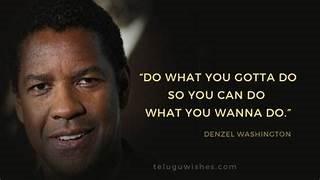“Do what you gotta do, so you can do what you wanna do.” -Denzel Washington in The Great Debaters
When talking to college coaches each week, it has become a common theme regarding how important communication and leadership is to each of them. As it pertains to what they are looking for in a recruit, regardless of division or sport, the ability to communicate positively with their parents, coaches and teammates can often times be the deal breaker for a college coach.
In this week’s blog, I wanted to focus on 4 leadership lessons that I encourage all parents and coaches to spend a pocket of time each week discussing with their your student-athletes. It is important for all athletes to understand how they are perceived and how their character and actions can benefit or weaken the team (and their recruitment), no matter what type of leader they are or want to be.
1. Lead by Example
The most effective leaders on a team are often those who set the standard through their own actions. This means showing up on time, giving consistent effort, maintaining a strong work ethic, and demonstrating discipline both on and off the field/court. [Yes, this means your commitment to great grades and character in the classroom, too!] A leader who consistently exemplifies these qualities earns the respect of their teammates and motivates them to do the same.
Key takeaway: Leadership is not just about words; it’s about actions. If you want your teammates to work hard and stay focused, you need to set that example every day.
2. Effective Communication
Leaders must be able to communicate clearly and constructively. This includes not only speaking up to motivate or provide feedback but also being an active listener. Communication helps to build trust and resolve conflicts, ensuring that everyone on the team is on the same page and understands their roles.
Key takeaway: Great leaders know how to communicate with clarity, empathy, and respect, and they listen as much as they speak. A big part of this is sacrificing your ego for the good of the team.
3. Be Supportive and Inclusive
A strong leader recognizes that every team member brings unique skills and qualities to the group. Being an inclusive leader means actively supporting teammates, encouraging them during challenging times, and recognizing their successes. When all players feel valued and supported, it strengthens the overall team dynamic.
Key takeaway: Leadership is about fostering a positive and inclusive environment where every teammate feels they belong and can contribute.
4. Adaptability and Resilience
In sports, challenges and setbacks are inevitable. Strong leaders show resilience in the face of adversity by maintaining a positive attitude, adapting to change, and finding solutions to problems. They help their teammates stay focused and motivated during tough times, reinforcing the mindset that challenges are opportunities for growth.
Key takeaway: A leader’s ability to stay calm, flexible, and solution-focused in difficult situations encourages the entire team to stay strong and push forward together.
By focusing on these lessons, student-athletes can become more effective leaders, helping their teams succeed both on and off the field.
Looking for Coach Rogers’ book on college recruiting? Get your copy here: https://coachmattrogers.com/book/
Interested in a free 30-minute college recruitment strategy session with Coach Rogers? Schedule yours here: https://coachmattrogers.com/contact/






